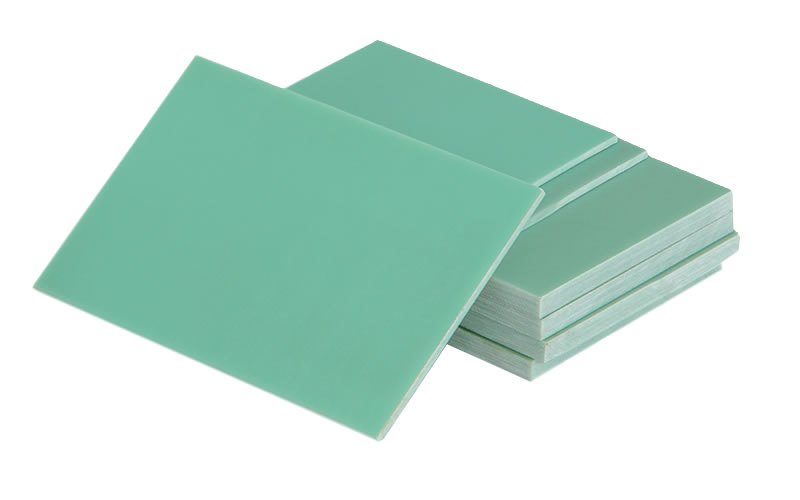What is the density of FR4 sheets?
FR4 sheet is a common composite material that is widely used in the manufacture of electronic circuit boards. It consists of fiber glass cloth and imported epoxy resin, and has high mechanical properties, dielectric properties, electrical insulation properties. The main colors are white (primary), light green, black and yellow.

What is the density of FR4 sheets?
The density of FR4 sheet refers to the mass of FR4 material per unit volume, and it is usually expressed in g/cm³ or kg/m³. This parameter is an important physical property of FR4 sheet and is closely related to the composition, manufacturing process and use of the material.
In general, the density of FR4 sheets varies over a wide range, but common density values are usually between 1.7 and 2.2 g/cm ³. The density values in this range allow FR4 sheets to exhibit good combined properties in terms of electrical insulation, mechanical support, thermal stability and flame retardancy.
Density measurement is very important for the quality control and application of FR4 sheet metal. By measuring density, performance indicators such as uniformity, density and porosity can be assessed to ensure that the material meets the specific application requirements.
What is the effect of density on FR4 sheet?
1. Mechanical properties
Strength and hardness: In general, higher density FR4 sheets tend to have better mechanical strength and hardness. This is because the higher density means that the fibers and resins inside the material are more tightly bound, which improves its ability to resist stretching, compression and bending.
Wear resistance and impact resistance: Denser FR4 sheets also generally exhibit better wear resistance and impact resistance. This makes them more suitable for use in situations where they need to withstand high loads and shocks.
2. Electrical properties
Insulation performance: FR4 sheets as an electrical insulation material, its density has a certain impact on the insulation performance. Although density is not the only factor in determining insulation performance, in general, FR4 sheets with moderate density have better insulation properties and can meet the requirements of most electrical applications.
Thermal conductivity: Density may also affect the thermal conductivity of FR4 sheets. Although FR4 itself is not a material with high thermal conductivity, changes in density can affect the heat conduction paths and efficiency within the material. However, this effect is usually not as significant as mechanical properties.
3. Processing performance
Cutting and drilling: Denser FR4 sheets may require higher energy and finer processing when cutting and drilling. This is because the tighter structure of the material makes it harder for the tool to penetrate and cut.
Forming and bending: Similarly, denser FR4 sheets may also face greater challenges in forming and bending. Higher density means the material is harder and less deformable, so more complex molding processes and higher temperatures are required to achieve the desired shape.
4. Cost
Raw material costs: Higher density FR4 sheets usually require more raw materials to manufacture, so their costs can be higher. This may affect the final selling price and market competitiveness of the product.
Processing costs: As mentioned earlier, denser FR4 sheets may require higher energy and more elaborate processes during processing, which will also increase processing costs.
